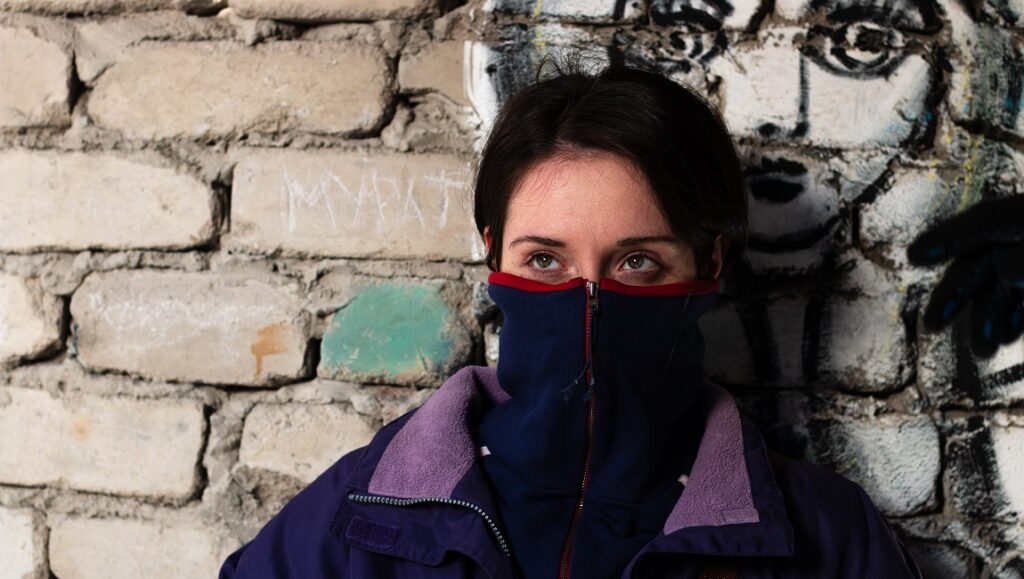One of the biggest pitfalls of depicting and representing trauma arrives precisely and most insidiously in what appears to be its greatest strength: by grafting inordinate quantities of both rational context and emotional pretext onto the backdrop of a larger social milieu, many films realize, instead of the catharsis they so desire, a nagging quality of artifice, having been engineered to prove a point. A work like Emerald Fennell’s Promising Young Woman, for instance, throttles the viewer’s independent capacity for imagination with its manifold schematics; not just of its heroine’s character development, whose predictability the film instead embraces as genre accoutrement, but also of her very raison d’etre as a toxic avenger against misogyny. Thankfully, Fennell’s film announces itself early on as a manifesto — providing a manicured outlet for the hashtag-trending, media-saturated crowd — and stakes little claim to a realism that eludes it, unlike, say, the overwrought histrionics of Kornél Mundruczó’s Pieces of a Woman, which proves especially grating in its leveraging of Vanessa Kirby’s maximalist delivery for audience sympathy.
It is in this light that Kira Kovalenko’s sophomore feature makes for such a welcome and exciting discovery. Set in the cinematic terra incognita of North Ossetia, a federal subject in Russia with its distinct language and identity, Unclenching the Fists masterfully surveys through its character study of one Adadza (Milana Aguzarova) — a woman trapped in the clutches of her father Zaur (Alik Karaev) — a broader topography of economic and cultural alienation. Working as a cashier in a small-town general store, she lives a life of deadened routine, circumscribed by her father’s unquestionable control and supervision; after she and her brother Dakko (Khetag Bibilov) return home in the evenings, Zaur locks the door with a key whose sole copy he safekeeps. An unassuming young man named Tamik (Arsen Khetagurov) pursues her doggedly, each time rejected less by disdain than out of fearful necessity, while Adadza longs instead for the return of her older brother Akim (Soslan Khugaev), who escaped their stifling household a while back to work in a neighboring city. None of them offer much solace in her father’s possessive grip, that of a man whose gentle façade nurses the ominous hints of an unspoken past.
This unspoken past forms the film’s pivotal point of absence around which are structured its peripheral developments, each frustratingly brought into motion yet simultaneously arrested by their unassailable inertia. Adadza suffers from a mysterious condition that Akim insists needs immediate treatment at the nearest out-of-town hospital, which Zaur refuses to consider. “I still pee myself like a baby,” she reveals in a moment of heartbreaking vulnerability to her brother, whose only response is to embrace her tightly. Unidentified scars litter her abdomen, which she attributes to burns from a hostage crisis in school. On the surface, however, the overwhelming sense of malaise reveals neither outlet nor origin, its patients littering the mountainous backwaters, both idle elderly and aimless youth caught up in a glacial stagnation. Following the footsteps of her mentor Alexander Sokurov, as well as her contemporary Kantemir Balagov, Kovalenko fashions from their blueprints of contemporary Russia a narrative indebted to the psychological specificity of her characters equally as it articulates a larger and ossified patriarchal reverence for tradition and community.
In fact, much of Unclenching the Fists recalls the harshly suffocating atmosphere of Balagov’s Beanpole, set in the aftermath of World War II and likewise fixated on the act of assembling from the ruins a promise of the future. The bleak brushstrokes of Leningrad in that film mirror Kovalenko’s own frames here, each densely packed with the weight of events submerged and precariously left unexamined by the dim light of present day. Refuting the bastardization of melodrama that countless soap operas have imposed on filmmakers and filmgoers alike, her direction espouses ambiguity, not for its own sake, but artfully and tactfully; where her debut Sofichka disappointingly exhumed Soviet history through an uncertain narrativization of biography, Unclenching the Fists assuredly portrays the subjectivity of personal experience without resorting to the easy satisfaction of unraveling it. That the cast, especially Aguzarova and Karaev, appear muted in their performances, speaks not to a lack of ambition; but in capturing Adadza’s childlike precarity alongside her father’s physical and vocal frailty, Kovalenko amplifies the airless menace coursing through her sweltering drama, relentless in its openness to interpretation. The scars potentially run deep in Adadza’s family, and it would take more than the unclenching of fists — if and when that happens — to heal and be free.
DIRECTOR: Kira Kovalenko; CAST: Milana Aguzarova, Alik Karaev, Soslan Khugaev; DISTRIBUTOR: MUBI; STREAMING: May 26; RUNTIME: 1 hr. 37 min.
Originally published as part of Cannes Film Festival 2021 — Dispatch 2.


Comments are closed.